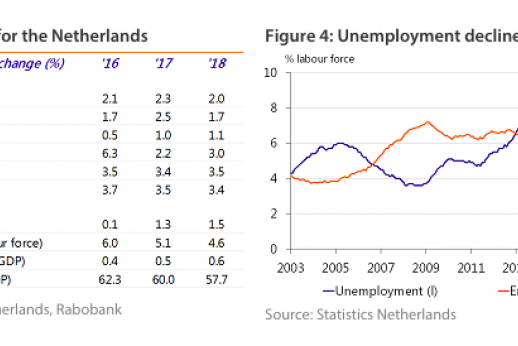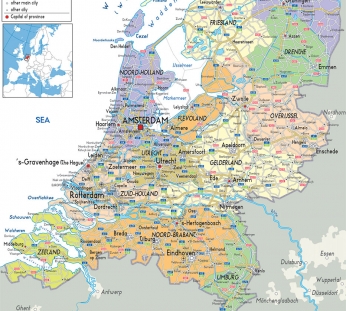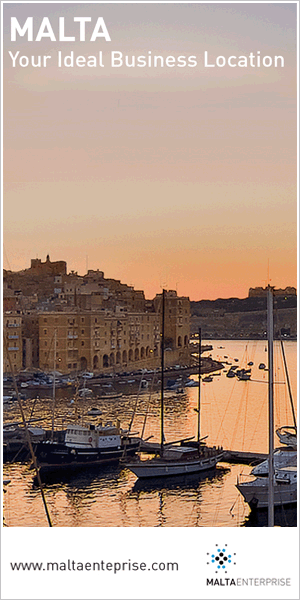
Netherland
Capital: Amsterdam; seat of government: the Hague; GDP growth (annual %) 2016: 2.1%;-
Netherlands Netherlands unemployment rate
-
The Netherlands: Europe’s Under-The-Radar Tax Haven
Dutch NGO Somo has been blowing the whistle on the Netherlands’ tax practices since 1973. So far, to little result. The founding member of the European Union was still the world’s third-ranked tax haven in 2016.
“The evidence is piling up,” said Katrin McGauran, clearing a mountain of documents from her desk in an old home just outside the city centre in The Hague. Top of the pile is a document entitled “Fool’s gold”, the case of a gold mine in Greece, run by Canadian mining company Eldorado Gold. “An example to show you the Dutch sandwich,” a lesson in tax optimisation.
More > -
Dip in household consumption, but more jobs in the Netherlands
Recent monthly figures are somewhat mixed, but still show that the Dutch economy is experiencing a period of strong recovery. Dutch trade figures were particularly positive. Despite international uncertainties, in February the volume of exports of goods increased strongly by 1.8% m-o-m (own seasonal adjustment). Momentum (3m-o-3m increase) is presently at 2.3%, a increase rate last seen at the start of 2012 (see figure 1). The volume of exports of goods is up 7.9% compared to February 2016.
A reason for this high export increase may be stronger a rise in exports to nations outside the Eurozone and EU. However, we expect that in the coming months export increase will slow somewhat as the request for imports in the US and the UK will decline. The pound’s depreciation is making Dutch export products relatively expensive for households and businesses in the UK. And while the US economy is expected to grow substantially next year, Dutch exporters may not benefit as the increase will primarily be in domestic investment and consumption.
More >
- Key Facts
-
Full name: The Kingdom of the Netherlands
Population: 16.7 million (UN, 2011)
Area: 41,864 sq km (16,164 sq miles)
Major language: Dutch
Major religion: Christianity
Life expectancy: 79 years (men), 83 years (women) (UN)
Monetary unit: 1 euro = 100 cents
Main exports: Metal manufacturing, chemicals, foodstuffs
GNI per capita: US $49,730 (World Bank, 2011)
Internet domain: .nl
International dialling code: +31
-

Climate change laws around the world
2017/05/14There has been a 20-fold increase in the number of global climate change laws since 1997, according to the most comprehensive database of relevant policy and legislation.
The database, produced by the Grantham Research Institute on Climate Change and the Environment and the Sabin Center on Climate Change Law, includes more than 1,200 relevant policies across 164 countries, which account for 95% of global greenhouse gas emissions.
-
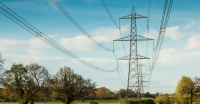
Brexit negotiations should treat energy as ‘special case’
2017/05/14There are strong practical reasons why the UK and EU should treat energy as a appropriate case during Brexit negotiations, argues a new statement.
The statement, jointly authored by Chatham Home, the University of Exeter and the UK Energy Research Centre (UKERC), says finding common ground on energy during the Brexit negotiations would benefit both the UK and remaining EU27, while compromise may be relatively easier to achieve than for other areas.
-
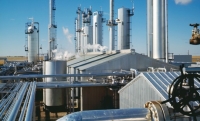
Shell drops $6.5bn Al Karaana
2015/01/16Royal Dutch Shell has scrapped plans for a $6.5bn petrochemicals project with Qatar Petroleum, citing “the current economic climate prevailing in the energy industry”, the oil major said on Wednesday.
The Al Karaana project, an 80:20 joint venture between Qatar Petroleum and Shell, would have produced 2m tonnes a year of petrochemicals products, largely intended for Asian markets.
-
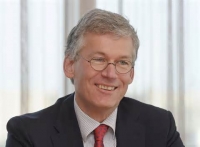
Frans van Houten is the CEO of Royal Philips Electronics
2013/05/18Here’s a bold prediction: formerly the centennial in 2030, an African country will win the FIFA World Cup for the prime time. Why? Because of a nascent technology that will brighten up Africa’s football pitches and vastly improve the quality of rural life.
Imagine a satellite image taken of planet earth at night. Developed areas, like Europe and North America, are brightly lit. Less developed areas, like most of Africa, are predominantly dark. With some 600 million Africans without access to electricity, good light can be hard to find at the same time as the sun sets around 7pm. In the 11 dark hours that follow, communities are less safe, less productive and less social.
- Netherland News
-
- ECONOMY: Netherlands Netherlands unemployment rate
- STOCK MARKET / FINANCE: The Netherlands: Europe’s Under-The-Radar Tax Haven
- ECONOMY: Dip in household consumption, but more jobs in the Netherlands
- INDUSTRY: Mozambican company starts exporting macadamia nuts
- EDUCATION: Higher earning Why a university degree is worth more in some countries than others
- BUSINESS / TRADE: New head of EU delegation assumes duties in Uzbekistan
- Trending Articles
-
- BOTSWANA: Bill Gates sees US likely to maintain aid levels for Africa
- NIGERIA: The city that won't stop growing, Lagos
- EUROPEAN UNION: UK seeks to 'align' with EU on data protection rules
- ANGOLA: Buhari Among African Presidents Who Lack Faith in Own Health Systems
- PAKISTAN: Qatar launches new direct sea route to Pakistan
- BOTSWANA: Africa’s economic growth in 2016 was driven by East Africa





